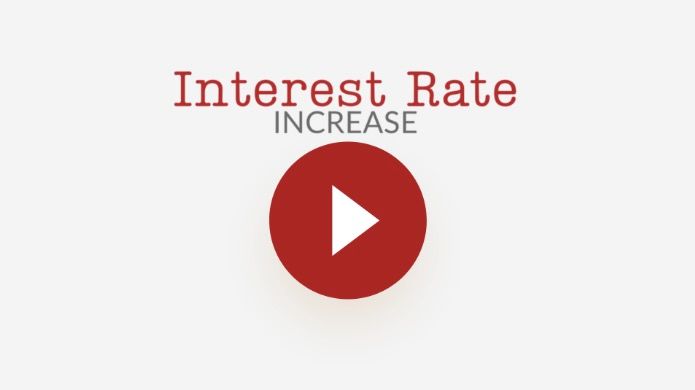Breaking Down the Latest Bank of Canada Interest Rate Hike
Here we go again….The Bank of Canada has once again increased the Bank of Canada rate. This time the increase is 0.25%. This increase will impact the prime lending rate which is now expected to be increased at most banks to 6.70%. A small bit of good news is that the Bank Governor has hinted this may be the last increase for some time and many economists are predicting this new prime will hold for several months. More good news, inflation is cooling with the rate of inflation dropping to 6.3% this month which is the lowest number since February 2022. There is still a lot of uncertainty in the Canadian and Global economies in general and we continue to hear predictions of a recession looming.
All of this comes today, January 25th which is “Bell Let’s Talk Day”! The irony is not lost on me that that today is a day for open conversations to acknowledge that we need to talk about stress, anxiety and mental health. The past eleven months and all these repeated rate hikes coupled with the pressure of historically high inflation, declining investment returns and rising costs on all fronts has most certainly negatively impacted mental health for many Canadians.
For most people, likely the best financial decision today is to hold tight in their Variable Rate mortgage and ride this out. History has proven that the old saying “what goes up must come down” does apply to the prime lending rate but the timing of the next downward trend is unknown. This uncertain timing and the lack of a crystal ball to predict the future, means that for some borrowers the time may have come to lock in and/or to convert to a fixed rate. In many cases this decision is more of a positive mental health decision versus a financial decision. This may mean early renewing and refinancing, switching lenders or locking in with a current lender.
More good news…..in the last three weeks, we have seen the fixed mortgage rates coming back down for some terms with some lenders! We are now seeing rates between 4.70% and 5% and especially for the three year and five year fixed options, there are some attractive offers. These lower rates have afforded an opportunity for borrowers to consider converting to a fixed, stable rate and payment, to “set it and forget it” and ride out this economic storm.
All of this is very personal and each scenario should be reviewed individually to discuss the pros and cons before any changes are made. I invite you to book a conversation with me so that we can discuss your specific goals and needs.
For those of you who are craving more information from economic experts, I have put together a brief list of additional reading and resources…..Note: I did NOT say required reading….I recognize this stuff is not for everyone!!!
From CIBC economist Benjamin Tal - Another rate hike, house price declines and a stock market gaining traction in the second half: What CIBC’s Benjamin Tal expects for 2023: Click Here
Upcoming Events:
MASTER YOUR MORTGAGE WITH THE SMITH MANOEUVRE with Robinson Smith
January 30, 2023 @ 7:00 pm
With these high interest rates and high inflation, it is now even more important, and effective, to deduct your mortgage interest but this is not so easy in Canada. As a rule, mortgage interest is not an acceptable tax deduction in most instances.
There are ways to do this legally but it takes planning and management by the homeowners / mortgage holders. The strategy is known as The Smith Manoeuvre and it can work well for some people. Once implemented and with ongoing management and due diligence, the Smith Manoeuvre can save homeowners money over time.
Want to learn more? Join us for this live Webinar co-hosted and presented by Robinson Smith (he quite literally wrote the book on the Smith Manoeuvre). Sign up below and even if you cannot attend live, we will send you the replay.
TOP TEN THINGS TO CONSIDER WHEN RENEWING YOUR MORTGAGE Hosted by Marci Deane
February 7, 2023 @ 7:00 pm
I am going to discuss all things related to Mortgage Renewals and help borrowers prepare for renewing in 2023! For most borrowers this means renewing at rates that will be 2% ++ above where they started out. It is more important than ever to understand all your mortgage options at renewal.
Even if you cannot attend and if these topics interest you, register and you will receive the replay!
Share













